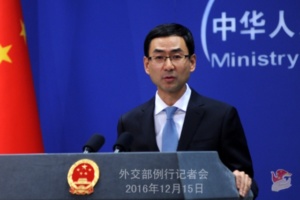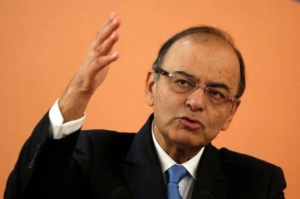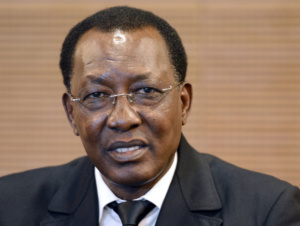By Peter Olorunnisomo – The rise of China’s economic wealth in the last decade had every likelihood to tilt the balance of power in world politics. Backed by technological advancements and diplomatic networking particularly among African countries which, at the time, had started suffering ‘withdrawal symptoms’ from western world leaders lack of support looked out for new ‘friendships’.

Even as echoes of the benefits of economic prosperity usually predict, as with the World wars and Germany, and of course history, it would appear that the cycle is about re-inventing itself.
With a propensity to be short-sighted as they battle local political ‘insurgencies’ and the perennial cancer of corruption and migraines of poverty, health and social infrastructural inadequacies, African governments struggle to wear the toga of their national interests fittingly.
And with neo-colonialism constantly being defined and re-defined along economic lines ever since the birth of the League of Nations, as the socio-political psyche of so many nubian pundits locked with the theme of Nesta marley’s Redemption song, patriotism and national interest are also redefined depending on how you see your cup – half full or half empty.
China’s extension of its diplomatic and economic frontiers should therefore not be a potential inclusion for military conclusion.
It is in an attempt to reinforce its military clout at strategic points, that China dispatched members of its People’s Liberation Army to the Horn of Africa nation of Djibouti to man the rising Asian giant’s first overseas military base, a key part of a wide-ranging expansion of the role of China’s armed forces.
China’s state news agency Xinhua said the ships had departed from Zhanjiang in southern China “to set up a support base in Djibouti”.

Djibouti’s position on the northwestern edge of the Indian Ocean has fuelled worry in India. The tiny, barren nation sandwiched between Ethiopia, Eritrea and Somalia also hosts the US, Japanese and French bases. Djibouti, which is about the size of Wales, is at the southern entrance to the Red Sea on the route to the Suez Canal.
Though Beijing officially described it as a logistic facility, this move is viewed differently in India. The narrative of a tiny country with almost no natural resources, high unemployment rate and vast stretches of semi-arid desert doesn’t quite explain why global military powers are making a beeline for the Horn of Africa.

1. The location of Djibouti is of prime importance as its proximity to edgy regions in the Middle East and Africa makes it strategically important for military superpowers to set up their bases there. It could potentially become another part in China’s ‘string of pearls’ of numerous military alliances surrounding India, including Myanmar, Sri Lanka and Bangladesh. String of pearls refers to the network of Chinese military and commercial facilities developed by China in countries falling on the Indian ocean between the Chinese mainland and Port Sudan. The Indian defence establishment is extremely cautious as the string of pearls has the potential to encircle India. India’s ‘Look East policy’ was always seen as an answer to Chinese string of pearls.
2. Indian Navy has sighted more than a dozen Chinese warships, including submarines, destroyers and intelligence-gathering vessels, in the Indian Ocean during the last two months. The sightings assume significance as the two militaries are in a three-week-long standoff at an India-China-Bhutan trijunction close to the Sikkim border.
3. Defence analysts have also pointed out that Chinese attempts to establish its military bases at far-flung strategic locations can also been seen as a response to the deepening Malabar military exercise. Conducted annually since 1992, Malabar is a trilateral naval exercise involving the US, Japan and India as permanent partners.The joint maritime exercise has grown over the years to reiterate the idea of global maritime community.
4. The sea lanes in the Indian Ocean are considered among the most strategically important in the world. According to the Journal of the Indian Ocean Region, more than 80 per cent of the world’s seaborne trade in oil transits through Indian Ocean choke points, with 40 per cent passing through the Strait of Hormuz, 35 per cent through the Strait of Malacca and 8 percent through the Bab el-Mandab Strait. A major concern of India in the Indian Ocean is energy. India is fourth-largest economy in the ..
5. Chinese state news agency Xinhua said the establishment of the base was a decision made by the two countries after “friendly negotiations and accords with the common interest of the people from both sides”. Though Beijing indicated that China was not moving away from its defensive military policy, there are no doubts that is an attempt to expand the reach of its military.
6. Setting up of military base in Djibouti comes in the backdrop of a series of such exercises, starting from OBOR to building ports and other infrastructure in Sri Lanka, Bangladesh and Pakistan. India’s concerns surround sovereignty as the China-Pakistan Economic Corridor (CPEC), which forms a part of OBOR, runs through Indian sovereign territory of Kashmir.
The potential fan warm, old embers into ignition cannot be taken for granted looking back at the Indo-Chinese relationship.
And amid the stand-off on the border with China, Minister of State in the PMO Jitendra Singh on Wednesday said that India is today better equipped to meet challenges than it was in 1962.
To a question on the situation on the border with China, where troops of both countries are engaged in a stand-off, Singh said that “India today is not the India of 1962”, when it lost the war.
India today is much different and much better equipped to meet any challenge, he said.
His comments reiterate what Defence Minister Arun Jaitley said a few days ago that the India of 2017 is different from the India of 1962.
Jitender Singh’s comments come as China on Wednesday demanded that India withdraw its troops from Doklam in the Sikkin sector as a precondition for dialogue.
Foreign Ministry spokesperson Geng Shuang said in Beijing that the trespass by Indian troops in Doklam was different from the “frictions in the undefined sections of the boundary” between India and China.
Geng said what has happened in Doklam is a dispute. He dismissed Indian Foreign Secretary S. Jaishankar’s remarks that differences over the border between India and China had occurred in the past also and were resolved.
Kindly follow us on twitter:@AfricanVoice2










